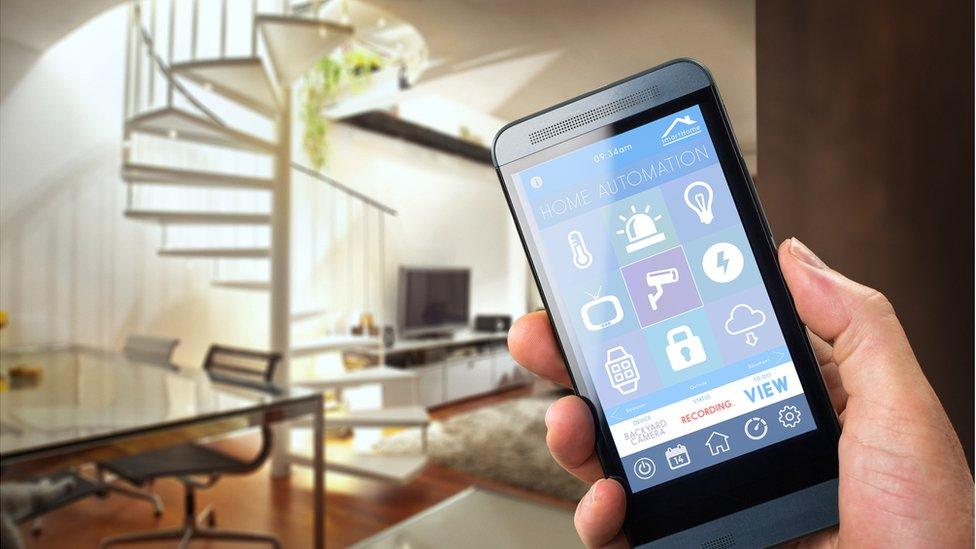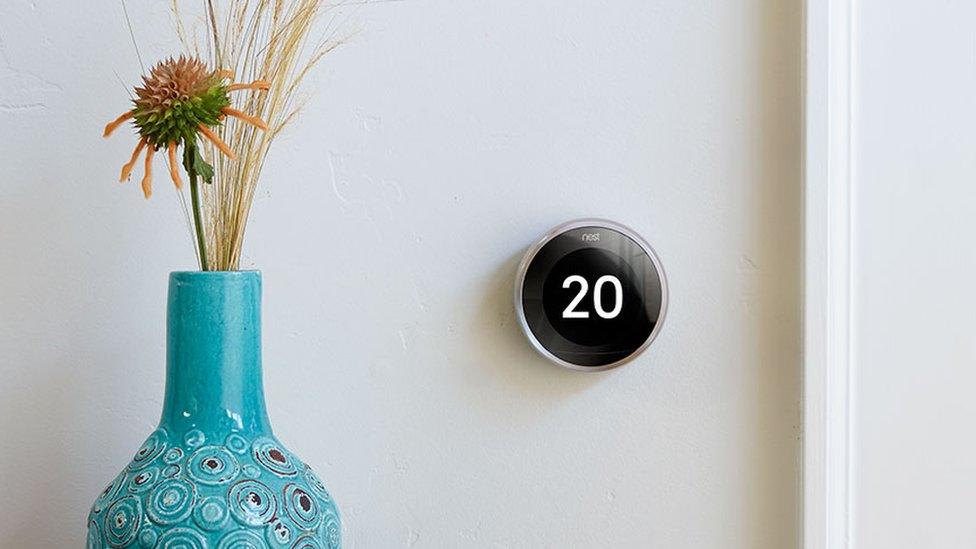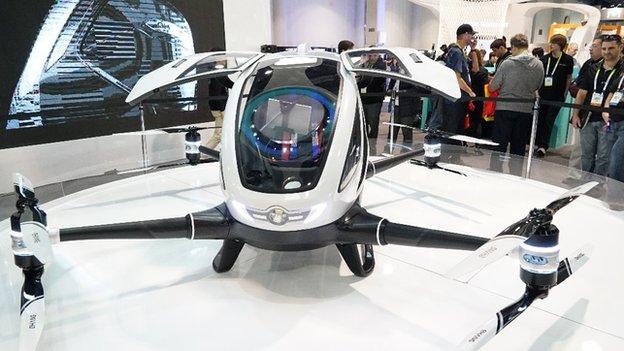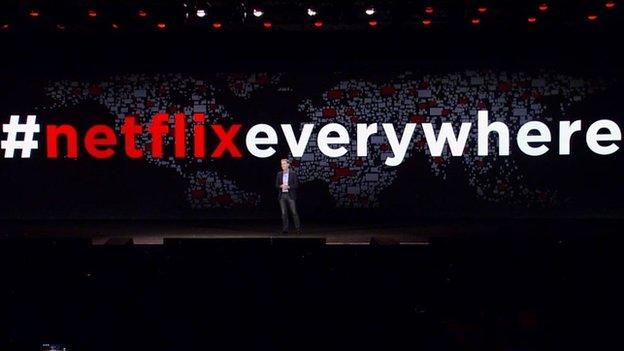CES 2016: 'PayPal' of smart devices puts users in control
- Published

Our gadgets are capturing increasing amounts of data about us
A company that uses machine learning to create a digital identity map of individuals is showcasing its technology at the CES tech show.
I caught up with the man behind it in a quiet area away from the show floor.
Gilad Meiri's demo was both terrifying and enlightening.
It is something his company, Neura, normally only shows internally to its employees.
But it's something that would be food for thought for the many companies showcasing their so-called smart gadgets at the Vegas show.
His firm has created smartphone software that sucks in data from many of the apps a person uses as well as their location data.
"You should be scared," he told me. "It is a radical view of privacy".
The screen he showed me displayed a week in the life of Neura employee Andrew - detailing all of his movements and activities via the myriad of devices - phones, tablets and activity trackers - that we all increasingly carry with us.
It also showed all his interactions with others via his smart devices.
"This is a map of your life, it shows what places are important to you. It is the holy grail of the internet of things," said Mr Meiri.
It should be noted that Andrew consented to Neura tracking his activities - but I can't show the map of his digital identity in this article, for privacy reasons.
Neura gathers all this data in order to automatically provide notifications that it thinks will help its owner over the course of the day.
But the firm's ultimate goal is to offer its service to other apps, and act as a single secure channel for all of a user's personal data rather than having it handled by multiple parties, as is currently the case.
Spy technology
Neura aims to offer an alternative model to companies like Google, which already gather lots of data about their users.
The search firm relies on having access to information about people's web-browsing habits to make money. It has also moved into connected devices via its smart home division Nest, although it says it does not mix the two sets of data.
While Mr Meiri says that Neura's technology could be combined with Google's he adds he has no intention of forming a partnership with the US giant.

Google owns Nest, which makes a popular smart thermostat
"Google takes data and serves ads, and in response you get a free service," Mr Meiri said.
"Our model is radically different - we take your data, transform it into knowledge that you can sell back to companies.
"We are like PayPal for the internet of things.
"We facilitate transactions, and our currency is your digital identity.
"It is a spy technology, but it is powered by trust."
Consumers win
So, why would a consumer want to share such sensitive data?
It would, Mr Meiri said, allow smart devices to become truly smart.
"The fact that an oven is connected to the internet is not smart - but an oven that knows when you have left the house and left the oven on, that is.
"It is about devices understanding you."
While companies making smart devices already have valuable data on customers, there are also dozens of different protocols for how devices talk to each other, making the burgeoning industry something of a Wild West, according to experts.
"This year's CES underlines the desperate levels of fragmentation and confusion in connected-home solutions," said Ben Wood, of research company CCS Insight.
The numerous gadgets on show that supported Google's Nest, Amazon's Echo and Apple's HomeKit risked "consumers sleepwalking into a connected home experience curated by technology giants", he added.
Neura is hoping to change that.
"With the internet, we have lost the battle to control our data, so changing the data economy for the internet of things, opposing the Google model is worth a shot," Mr Meiri said.
"Users can own their data, they can win."
Read more of our CES articles and follow the BBC team covering the show on Twitter, external.
- Published7 January 2016

- Published6 January 2016
